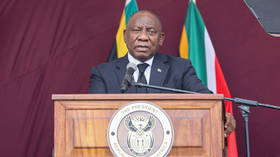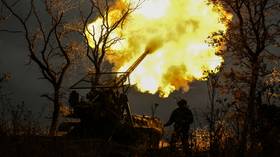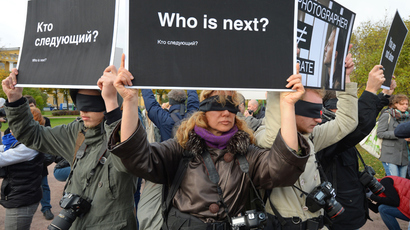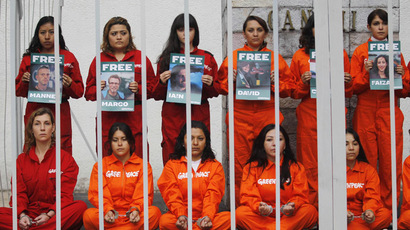Russia softens charges against Greenpeace activists from piracy to hooliganism
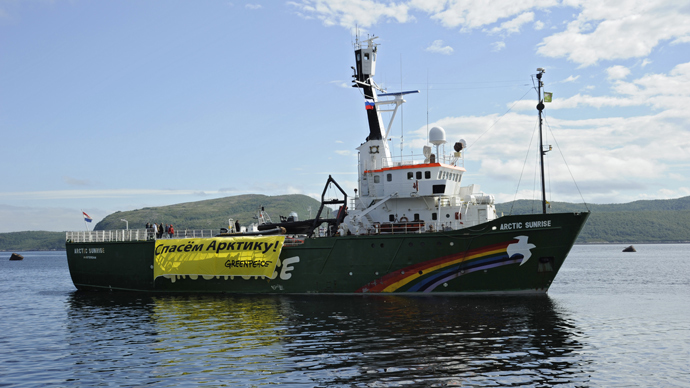
Russia’s Investigative Committee has stated that the charges against the Greenpeace activists from the Arctic Sunrise have been softened from “piracy” to “hooliganism”.
"The actions of those involved in
the criminal case have been reclassified to the charge of
hooliganism," the spokesman for the Investigative
Committee, Vladimir Markin, told the RIA Novosti news
agency.
Greenpeace has called the new Russian charge of hooliganism for
its arctic protest “wildly disproportionate” and said that
both the charges of piracy and hooliganism “bear no relation
to reality.”
“The Arctic 30 are no more hooligans than they were pirates.
This is still a wildly disproportionate charge that carries up to
seven years in jail. It represents nothing less than an assault
on the very principle of peaceful protest,” the organization
said in a statement published on its website. “We
will contest the trumped up charge of hooliganism as strongly as
we contested the piracy allegations,” the group said.
All 30 Arctic Sunrise crewmembers from 18 different countries were charged with piracy at the beginning of October, which carries a maximum penalty of 15 years in prison. The hooliganism charge carries a maximum penalty of 7 years.
The activists were arrested following their protest at Gazprom’s Prirazlomnaya oil platform in the Barents Sea on September, 18. They are currently being held in pre-trial detention in the city of Murmansk, northern Russia.
The prosecution insisted Greenpeace activists “posed a real threat” to employees on the rig.
Greenpeace denies the
accusations saying that it did not create any kind of threat to
the safety of the platform’s personnel, as the activists had
nothing but banners and ropes with them.
Another argument against the piracy charges was that the Arctic
Sunrise ship did not breach the 500-meter zone around the
platform, with Greenpeace adding that satellite data proves their
statement.
On Oct. 4, the Netherlands filed a lawsuit against Russia in an
international maritime court in a bid to win the release of the
Dutch-registered Greenpeace vessel Arctic Sunrise and its 30
crewmembers.
In response, Russia’s Foreign Ministry criticized the Dutch
authorities for not intervening in the situation earlier, as
“over the last year and a half the Russian side made repeated
attempts” to draw the attention of the Dutch government to
“the vessel’s illegal activities.”
On Monday, the Dutch government asked the International Tribunal
for the Law of the Sea to order Russia to free all the Greenpeace
ship crewmembers, but Moscow dismissed the request sent to the Hamburg-based
tribunal. It also refused to take part in the proceedings.
However, Moscow remains “open to the settlement” of the
situation around the case.
The Greenpeace activists’ detention in Russia has sparked a
massive reaction among the group’s supporters and human rights
organizations. Greenpeace started the “Free the Arctic 30”
campaign, over 1.5 million people across the globe have sent
letters to Russian embassies demanding their release.






